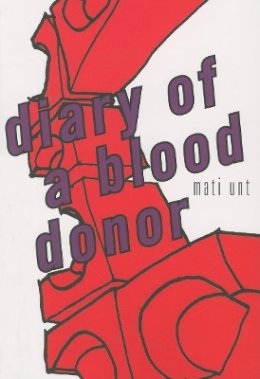4%OFF

Stock image for illustration purposes only - book cover, edition or condition may vary.
Diary of a Blood Donor
Mati Unt
€ 13.99
€ 13.49
FREE Delivery in Ireland
Description for Diary of a Blood Donor
Paperback. Translator(s): Eert, Ants. Series: Eastern European Literature Series. Num Pages: 175 pages. BIC Classification: FA. Category: (G) General (US: Trade). Dimension: 205 x 140 x 15. Weight in Grams: 282.
In this contemporary retelling of Bram Stoker’s Dracula, Estonian writer Mati Unt offers a playful yet unsettling mixture of fact and fiction, combining pieces of Estonian political history—in particular the figure of Lydia Koidula (1843-1886), widely regarded as the first Estonian woman to express an Estonian longing for independence—with portraits of life in contemporary Estonia, all set against a backdrop of vampirism and the Gothic novel.
In this contemporary retelling of Bram Stoker’s Dracula, Estonian writer Mati Unt offers a playful yet unsettling mixture of fact and fiction, combining pieces of Estonian political history—in particular the figure of Lydia Koidula (1843-1886), widely regarded as the first Estonian woman to express an Estonian longing for independence—with portraits of life in contemporary Estonia, all set against a backdrop of vampirism and the Gothic novel.
Product Details
Format
Paperback
Publication date
2008
Publisher
Dalkey Archive Press United States
Number of pages
175
Condition
New
Series
Eastern European Literature Series
Number of Pages
212
Place of Publication
Normal, IL, United States
ISBN
9781564784964
SKU
V9781564784964
Shipping Time
Usually ships in 4 to 8 working days
Ref
99-2
About Mati Unt
Mati Unt (1944-2005) was an Estonian writer who began his writing career at the age of nineteen, with a "naive novel" entitled Good-bye, Yellow Cat. From this early beginning, Unt established a broad reputation in the artistic and intellectual circles of Estonia as a writer of fiction, plays, and criticism. His novels The Debt, On the Existence of Life in ... Read more
Reviews for Diary of a Blood Donor
a disturbing and comic tale of obsession, politics and the vagaries of literature.' -Sam Munson, New York Post
